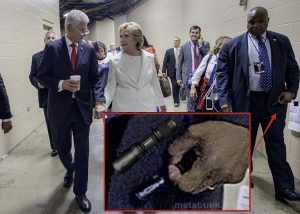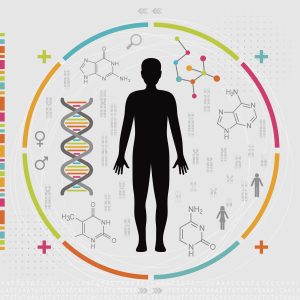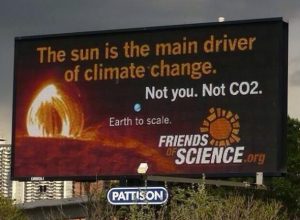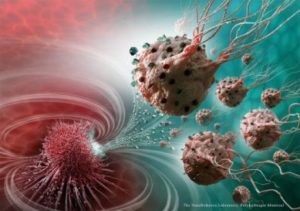Aug
30
2016
 Don’t be confused by the headline – my intention is not to defend pseudoscience itself but rather the use of the term “pseudoscience.” In a recent commentary for American Scientist, Katie L. Burke argues that journalists and science communicators should stop using the term, “pseudoscience.” I disagree with her position and I think she is committing a number of logical fallacies, which I will now explore.
Don’t be confused by the headline – my intention is not to defend pseudoscience itself but rather the use of the term “pseudoscience.” In a recent commentary for American Scientist, Katie L. Burke argues that journalists and science communicators should stop using the term, “pseudoscience.” I disagree with her position and I think she is committing a number of logical fallacies, which I will now explore.
She writes:
A guiding tenet has emerged through years of climate change discussions and other polarizing scientific debates: Framing issues as “us versus them”—with a clear ingroup and outgroup—encourages polarization. The term pseudoscience inherently creates this framing, pitting those who believe in “real” science against those who believe in “fake” science. But these discussions really indicate whom we trust. And maybe if people trust alleged pseudoscience over science, we should be discussing why, rather than dismissing their values and beliefs.
Ironically Burke is not considering how she is framing her own discussion of use of the term “pseudoscience.” She is framing the distinction as a value judgment, rather than what it is, a judgment regarding scientific process and evidence.
Making objective statements about facts and logic is not a dismissal of someone’s values and beliefs. If Burke had any familiarity with the skeptical literature (and her essay provides much evidence that she does not) she would know that this is a point of heated discussion. In short, we try very hard to separate personal values and beliefs from science. Science is a process of empirically investigating the universe with valid logic.
Continue Reading »
Aug
29
2016
 The health of the candidates for the presidency is considered fair game, which I think is reasonable. Being president is physically grueling. It requires stamina and if a candidate has health issues that can affect their ability to perform the job, and may also affect whether or not they are likely to live out their term in adequate health.
The health of the candidates for the presidency is considered fair game, which I think is reasonable. Being president is physically grueling. It requires stamina and if a candidate has health issues that can affect their ability to perform the job, and may also affect whether or not they are likely to live out their term in adequate health.
FDR famously kept his condition from the general public. He had polio when he was 39 (although some researchers think he may have had Guillain-Barre) and was essentially wheelchair bound. This would not affect his ability to function as president, but it was thought that if voters saw him in a wheelchair they would think he was less vigorous and perhaps even less manly.
Woodrow Wilson had a stroke in 1919, and the outside world was kept in the dark. His wife handled all his communication.
In retrospect it seems likely that Ronald Reagan was in the early stages of Alzheimer’s disease toward the end of this eight years in office. His wife and others close to him tried their best to cover for him, but it was clear he had lost his edge. He was later formally diagnosed with Alzheimer’s, which ultimately took his life.
Continue Reading »
Aug
26
2016
 I admit to a certain fascination with the informal “law of unintended consequences.” I think this is a very useful concept and should always be kept in mind. Essentially this axiom holds that the world is a complex place with far more variables in play than we could ever anticipate. Therefore our actions are likely to have consequences that we did not intend.
I admit to a certain fascination with the informal “law of unintended consequences.” I think this is a very useful concept and should always be kept in mind. Essentially this axiom holds that the world is a complex place with far more variables in play than we could ever anticipate. Therefore our actions are likely to have consequences that we did not intend.
It therefore makes sense to be cautious and humble when taking any big action (like passing a law, establishing a regulation, promoting an industry, etc.), and to build into the process monitoring the effects of the intervention and making course corrections as necessary.
A new study suggests that biofuels may be the latest entry in the book of unintended consequences. The study tries to address a very narrow question – how much of the carbon that is released into the atmosphere when biofuels are burned was offset by the taking up of carbon from the atmosphere when the plants used to create the biofuels (feedstock) were grown?
Continue Reading »
Aug
25
2016
 The Drake Equation is a thought experiment identifying which variables are needed to calculate the number of intelligent civilizations in the universe. Some people criticize the equation because we can only guess at the values of those variables, but that is not the point. The point was to identify the variables. This allows us to take the next step in the thought experiment, to plug in possible values and see what answers we get. Also, over time we will get better and better estimates of those variables.
The Drake Equation is a thought experiment identifying which variables are needed to calculate the number of intelligent civilizations in the universe. Some people criticize the equation because we can only guess at the values of those variables, but that is not the point. The point was to identify the variables. This allows us to take the next step in the thought experiment, to plug in possible values and see what answers we get. Also, over time we will get better and better estimates of those variables.
Recently astronomers Loeb, Batista and Sloan published a paper in which they did a similar thought experiment, but instead of asking how common life and intelligent life is in the universe right now, they asked how common life is likely to be over the lifetime of the universe.
Their conclusion:
We find that unless habitability around low mass stars is suppressed, life is most likely to exist near ~ 0.1M⊙ stars ten trillion years from now.
Ten trillion years is a long time, given that the universe is only 13.82 billion years old. What they are saying is that there are many low mass stars, or red dwarfs, in the universe. Further, low mass stars have a very long lifespan, hundreds of billions and even trillions of years. About 76.45% of all the stars out there are red dwarfs, and a star with 0.1 solar masses (a tenth the mass of our sun) could survive for 10 trillion years according to our models of stellar physics.
Continue Reading »
Aug
23
2016
 Imagine you or a loved-one has cancer. You have a choice between two treatment options. You can be treated by a physician who is a cancer specialist using therapies that have been extensively researched, where we know the risks vs benefit, we know how to dose the treatments, and how to monitor for and manage potential side effect.
Imagine you or a loved-one has cancer. You have a choice between two treatment options. You can be treated by a physician who is a cancer specialist using therapies that have been extensively researched, where we know the risks vs benefit, we know how to dose the treatments, and how to monitor for and manage potential side effect.
On the other hand you can be treated by someone who is not a physician (let alone a cancer specialist), who will also use powerful chemotherapeutic agents, but ones that have not been adequately studied, reviewed, or approved. We don’t know how to safely dose them, what all the possible risks are, or even if the agents work for your type of cancer (or at all, for that matter).
Which would you chose? It is hard for me to imagine why someone would choose the latter. Yet, if you slap the word “alternative” in front of the name of the latter clinic some people will think that it magically makes it the better choice. Also, some people have been so confused by conspiracy narratives they think that the con artist who isn’t a doctor is more trustworthy than the person who has dedicated their life to treating cancer.
Amazingly, they will argue that they don’t trust the doctors because there is too much money in cancer treatment, and then go to a clinic that will charge them $11,000 for unproven therapy. Continue Reading »
Aug
22
2016
 I feel that a lot of what I do here is separate marketing or ideological hype from reality. It’s a never-ending task, I think because humans have a tendency to view the world through narratives. We build a story about how we think the world works, and then that story drives our perception of the evidence (rather than the other way around).
I feel that a lot of what I do here is separate marketing or ideological hype from reality. It’s a never-ending task, I think because humans have a tendency to view the world through narratives. We build a story about how we think the world works, and then that story drives our perception of the evidence (rather than the other way around).
Not only do we create our own narratives, but we communicate with each other through narratives, especially when we are trying to be persuasive. Marketing is an excellent example, because it has evolved over decades, trying multiple strategies, and preferring those strategies which work best. You may have noticed that many commercials and ads do not try to persuade you with fact, but rather try to convey a feeling, an image – a narrative. The same is also true of politics.
So deep is this tendency to view the world thematically rather than empirically, that even in science-based and highly technical areas like medicine we can encounter it. In the last few years I have been encountering the terms “personalized medicine” and “precision medicine” more often. Frequently this is in the context of blatant pseudoscience, but these terms are used even within respectable science-based medicine.
What do these terms actually mean and how is this different than what we are already doing?
Continue Reading »
Aug
19
2016
 A recent article in the Guardian discusses how scientists and experts should communicate risk and certainty to the public. The author, Jack Stilgoe, makes some good points, but unfortunately frames it as part of a defense of Jill Stein:
A recent article in the Guardian discusses how scientists and experts should communicate risk and certainty to the public. The author, Jack Stilgoe, makes some good points, but unfortunately frames it as part of a defense of Jill Stein:
She said that there were ‘real questions’ about the dangers of vaccines, that GM foods have ‘not been proven safe’ and that ‘more more research is needed’ on the risks of electromagnetic fields.
…
As with climate change, it is tempting to claim that the science is certain, the evidence is clear and the debate should move on. Things are rarely so black-and-white. In politics, the facts don’t speak for themselves, so it falls to experts to make sense of the shades of grey.
Stilgoe is speaking of a dilemma faced by experts and science communicators when dealing with political or ideological opinions that diverge from the scientific consensus. The real dilemma is that if we communicate the science in technically accurate detail, it seems as if we are equivocating and those on the anti-science side will unfairly exploit this to exaggerate the uncertainty. If we gloss over the uncertainty to emphasize the bottom line, then the anti-science side will unfairly exploit that to say we are engaged in a cover-up and are being uncritical.
It is a no-win scenario, which is often the case when dealing with those who put ideology above science and reason. They aren’t playing fair, which can give them a rhetorical advantage over someone honestly trying to be fair.
Continue Reading »
Aug
18
2016
 CBS News Sunday Morning contributor Nancy Giles says that, in her opinion, Donald Trump is “clinically insane.” I have to wonder how “clinically insane” is different from regular “insane.”
CBS News Sunday Morning contributor Nancy Giles says that, in her opinion, Donald Trump is “clinically insane.” I have to wonder how “clinically insane” is different from regular “insane.”
I think the implication here is that this is a real psychiatric diagnosis of insanity, and not just a colloquial use of the word, like “that’s crazy.” Giles is implying that Trump has a mental illness, not just that she vehemently disagrees with his attitudes and temperament.
Meanwhile, there are conspiracy theories on the right about Clinton’s health and her “bizarre behavior,” with wild speculations about seizures and Parkinson’s disease.
A recent editorial on Medscape Psychiatry by Nassir Ghaemi asks a very interesting question, Is Psychoanalyzing Our Politicians Fair Game?
Armchair vs Professional
There is a range of behaviors going on here, and to some extent they need to be considered separately. Ghaemi was writing exclusively about psychiatrists (and to some extent psychologists) and their duties to patients, the profession, and as citizens.
Continue Reading »
Aug
16
2016
 One of the great promises of nanotechnology is that we will be able to send swarms of these microscopic robots into your body to do all sorts of helpful things, like clean plaque from your arteries, repair cell damage, and kill cancer cells. Theoretically, these are all great ideas. There are, however, non-trivial technological hurdles to realizing the potential of this technology.
One of the great promises of nanotechnology is that we will be able to send swarms of these microscopic robots into your body to do all sorts of helpful things, like clean plaque from your arteries, repair cell damage, and kill cancer cells. Theoretically, these are all great ideas. There are, however, non-trivial technological hurdles to realizing the potential of this technology.
Another related great idea is the concept of delivering chemotherapy directly to cancer cells with some sort of targeted nanocarrier. Chemotherapy for cancer primarily refers to toxic drugs that kill cells. Specific drugs are given in specific doses so that they primarily kill rapidly dividing cells, which include cancer cells, but have less of a toxic effect on cells with a more typical rate of division. Still, chemotherapy makes people very sick and we are generally pushing this toxicity to its limits in order to maximize the effect against cancer cells.
What if, however, we could deliver the chemotherapy directly to cancer cells? In fact, anything we can do to increase the concentration of chemotherapy in the cancer and reduce the concentration outside of the cancer will enhance efficacy and reduce side effects.
Continue Reading »
Aug
15
2016
 I love it when regular scientists decide to weigh in on a popular controversy. Recently scientists published a peer-reviewed paper in which they survey experts in atmospheric chemistry and atmospheric deposition over the nature of contrails and the claims that they are due to a secret large-scale atmospheric spraying program (SLAP), more commonly known as chemtrails.
I love it when regular scientists decide to weigh in on a popular controversy. Recently scientists published a peer-reviewed paper in which they survey experts in atmospheric chemistry and atmospheric deposition over the nature of contrails and the claims that they are due to a secret large-scale atmospheric spraying program (SLAP), more commonly known as chemtrails.
Chemtrails
This is definitely one of the more extreme conspiracy theories out there. In fact, the authors point to a 2015 survey in which only 2.6% of those surveyed said they believed in SLAP. That’s pretty rarefied conspiracy nonsense.
The idea is that those streaks of clouds behind jets are not just the result of jet engine exhaust causing condensation in the air (regular contrails), but that they are seeded with chemicals by the government for some secret and nefarious purpose. That purpose ranges from poisoning the population as a means of population control to controlling the weather.
Continue Reading »
 Don’t be confused by the headline – my intention is not to defend pseudoscience itself but rather the use of the term “pseudoscience.” In a recent commentary for American Scientist, Katie L. Burke argues that journalists and science communicators should stop using the term, “pseudoscience.” I disagree with her position and I think she is committing a number of logical fallacies, which I will now explore.
Don’t be confused by the headline – my intention is not to defend pseudoscience itself but rather the use of the term “pseudoscience.” In a recent commentary for American Scientist, Katie L. Burke argues that journalists and science communicators should stop using the term, “pseudoscience.” I disagree with her position and I think she is committing a number of logical fallacies, which I will now explore.
 The health of the candidates for the presidency is considered fair game, which I think is reasonable. Being president is physically grueling. It requires stamina and if a candidate has health issues that can affect their ability to perform the job, and may also affect whether or not they are likely to live out their term in adequate health.
The health of the candidates for the presidency is considered fair game, which I think is reasonable. Being president is physically grueling. It requires stamina and if a candidate has health issues that can affect their ability to perform the job, and may also affect whether or not they are likely to live out their term in adequate health. I admit to a certain fascination with the informal “law of unintended consequences.” I think this is a very useful concept and should always be kept in mind. Essentially this axiom holds that the world is a complex place with far more variables in play than we could ever anticipate. Therefore our actions are likely to have consequences that we did not intend.
I admit to a certain fascination with the informal “law of unintended consequences.” I think this is a very useful concept and should always be kept in mind. Essentially this axiom holds that the world is a complex place with far more variables in play than we could ever anticipate. Therefore our actions are likely to have consequences that we did not intend. The Drake Equation is a thought experiment identifying which variables are needed to calculate the number of intelligent civilizations in the universe. Some people criticize the equation because we can only guess at the values of those variables, but that is not the point. The point was to identify the variables. This allows us to take the next step in the thought experiment, to plug in possible values and see what answers we get. Also, over time we will get better and better estimates of those variables.
The Drake Equation is a thought experiment identifying which variables are needed to calculate the number of intelligent civilizations in the universe. Some people criticize the equation because we can only guess at the values of those variables, but that is not the point. The point was to identify the variables. This allows us to take the next step in the thought experiment, to plug in possible values and see what answers we get. Also, over time we will get better and better estimates of those variables. Imagine you or a loved-one has cancer. You have a choice between two treatment options. You can be treated by a physician who is a cancer specialist using therapies that have been extensively researched, where we know the risks vs benefit, we know how to dose the treatments, and how to monitor for and manage potential side effect.
Imagine you or a loved-one has cancer. You have a choice between two treatment options. You can be treated by a physician who is a cancer specialist using therapies that have been extensively researched, where we know the risks vs benefit, we know how to dose the treatments, and how to monitor for and manage potential side effect. I feel that a lot of what I do here is separate marketing or ideological hype from reality. It’s a never-ending task, I think because humans have a tendency to view the world through narratives. We build a story about how we think the world works, and then that story drives our perception of the evidence (rather than the other way around).
I feel that a lot of what I do here is separate marketing or ideological hype from reality. It’s a never-ending task, I think because humans have a tendency to view the world through narratives. We build a story about how we think the world works, and then that story drives our perception of the evidence (rather than the other way around). A recent article in the Guardian discusses how scientists and experts should communicate risk and certainty to the public. The author, Jack Stilgoe, makes some good points, but unfortunately frames it as part of a defense of Jill Stein:
A recent article in the Guardian discusses how scientists and experts should communicate risk and certainty to the public. The author, Jack Stilgoe, makes some good points, but unfortunately frames it as part of a defense of Jill Stein: CBS News Sunday Morning contributor Nancy Giles says that, in her opinion,
CBS News Sunday Morning contributor Nancy Giles says that, in her opinion,  One of the great promises of nanotechnology is that we will be able to send swarms of these microscopic robots into your body to do all sorts of helpful things, like clean plaque from your arteries, repair cell damage, and kill cancer cells. Theoretically, these are all great ideas. There are, however, non-trivial technological hurdles to realizing the potential of this technology.
One of the great promises of nanotechnology is that we will be able to send swarms of these microscopic robots into your body to do all sorts of helpful things, like clean plaque from your arteries, repair cell damage, and kill cancer cells. Theoretically, these are all great ideas. There are, however, non-trivial technological hurdles to realizing the potential of this technology. I love it when regular scientists decide to weigh in on a popular controversy. Recently scientists published
I love it when regular scientists decide to weigh in on a popular controversy. Recently scientists published




